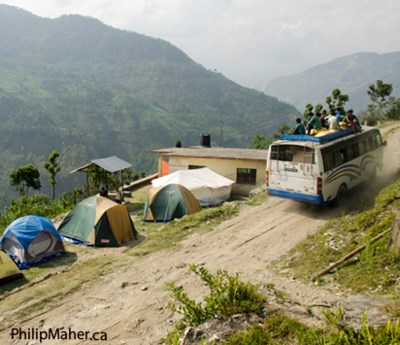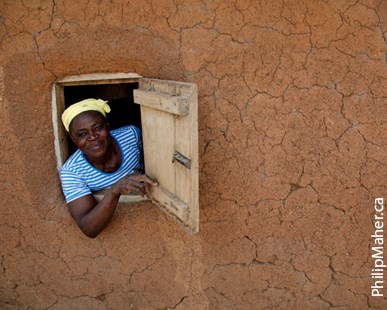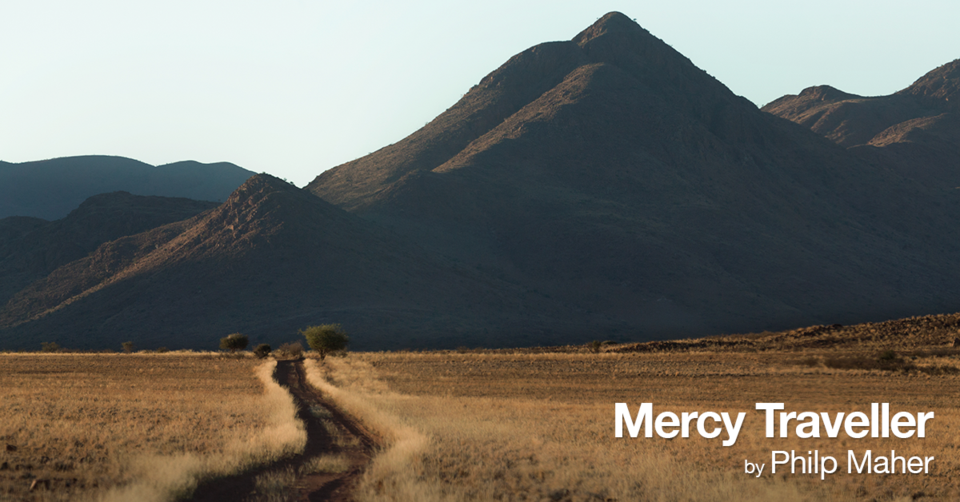Most people think about what items to take when planning such adventures. But what coping mechanisms do you take to deal with sketchy electricity, strange food, language misunderstandings, dogs that bark all night, and a churning tummy — often all on the same day?
Cultural adjustments can quickly add up to frustration or anger. Here are some ideas to pack before you take that flaming roller coaster ride that comes along with culture shock.
Learn some words in the local language — the more the better. Even in a place like East Africa where English is commonly used, people will warmly welcome you if you can express a hearty thank you, hello and a few simple phrases in Swahili.
 Positive attitudes were vital to accepting my accommodations while recently working in Nepal. Photo by Philip Maher.
Positive attitudes were vital to accepting my accommodations while recently working in Nepal. Photo by Philip Maher.Avoid becoming a cultural wrecking ball. Familiarize yourself with local customs in advance. This will help to reduce surprises and enable you to adjust mentally in your new location.
When misunderstandings or frustrations do take place, I remind myself that I knew it would be like this. It’s all part of the experience, and I tell myself to chill.
If there is any virtue I’d want to imbue upon the traveller, it’s patience.
Our western culture is an impatient one. Take things slowly and ask questions before drawing conclusions about people, cultural practices or politics. When mechanical things don’t work, don’t lose your cool. Think through a solution.
 Community relations is key for your travel enjoyment and your personal Safety. Photo by Philip Maher.
Community relations is key for your travel enjoyment and your personal Safety. Photo by Philip Maher. Just like in Canada, relationships are important. They are often handled differently in other parts of the world. Taking time to sit and enjoy tea before discussing business may be expected. Asking about family is simply a common courtesy. No matter how it’s done in your new home, those relationships can save your life in an emergency.
Ask local people for advice about fair pricing on purchases at markets where prices are not listed. While you don’t want to be taken advantage of, you also don’t want to be seen as unwilling to pay a fairly.
If you are not already a journal keeper, you should become one, at least while you travel. Your future self will thank you.
As you move around, think about security in four colours. Green means be alert, but you’re in a relatively secure location. Yellow means be extra cautious, perhaps you’re in a market where pickpockets are a potential threat. Orange means you should stay where you are or go to your rally point if it’s safe — and consider options for staying or evacuating. Perhaps there is a local election and some violence is possible. Red means stop what you are doing, get out of the region. As you travel, ask yourself daily, what colour does your location bring to mind? Don’t let security simply happen. Plan it. Keep two days of non-perishable food and water in a “go bag” on hand.
If you are on a volunteer trip, remember that the cost of the trip, if donated, could probably accomplish the intended goal of your group by hiring locals, whether it’s building a classroom or bouncing orphans on your knee. The truth is that this trip is really a cross-cultural growing experience for you. Your “selfless act” is selfish. Your three weeks is something of an adventure for you. It will not likely save the world or even a small part of it. But it may help to save us from consumptivitis (the drive to consume) and help us lead more compassionate lives. Realizing our selfish motivation helps to keep us humble. Those are worthy objectives.
When you get back home, read your journal. You’ll probably look back on your self with both pride and a bit of embarrassment. Looking in the mirror helps us all grow.
My final tip, enjoy the moment.
